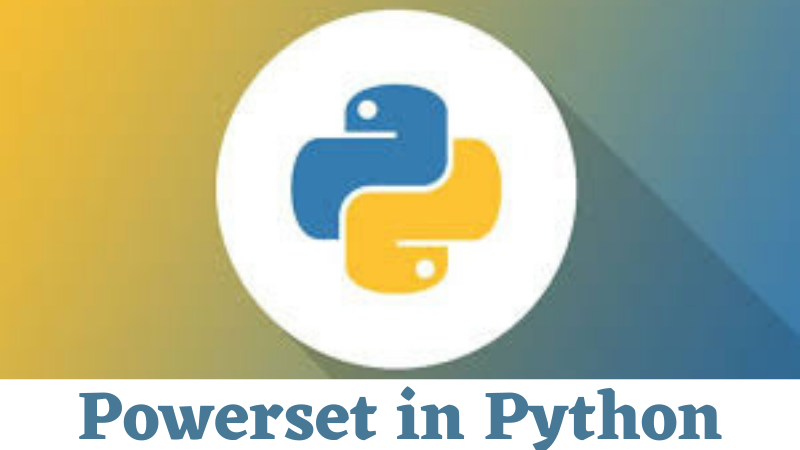
Powerset in Python
A powerset is the set of all the possible subsets of a given set S. A subset is a set that includes no(or)few(or)all the elements of the original set S. It includes both the given set S and an empty set {}.
Given set: S = {1}
Powerset: P = {{},{1}}
Given set: S = {1, 2}
Powerset: P = {{},{1},{2},{1,2}}
Given set: S = {1, 2, 3}
Powerset: P = {{},{1},{2},{3},{1,2},{1,3},{2,3},{1,2,3}}
Python is enabled with itertools.combinations(iterable, n) function which returns subsequences of elements from the input iterable length n. This function can be used to print all the subsets of a set of a specified size. Let’s discuss two ways of doing this.
We pass the set as iterable and the size as arguments in the itertools.combinations() to directly obtain the combination list.
# code to print powerset of given size of a set
>>import itertools >>def power_set(s, n): return list(itertools.combinations(s, n)) >>s = {1, 2, 3} >>n = 2 print(power_set(s, n))
Output:
>>[(1, 2), (1, 3), (2, 3)]
Here’s another way to print a power set. We use a for loop in itertools.combinations() function and append the list with the combination sets.
#code to print powerset of given size of a set
>>import itertools >>def power_set(s, n): return [set(i) for i in itertools.combinations(s, n)] >>s = {1, 2, 3, 4} >>n = 3 >>print(power_set(s, n))
Output:
[{1, 2, 3}, {1, 2, 4}, {1, 3, 4}, {2, 3, 4}]
Reference:



